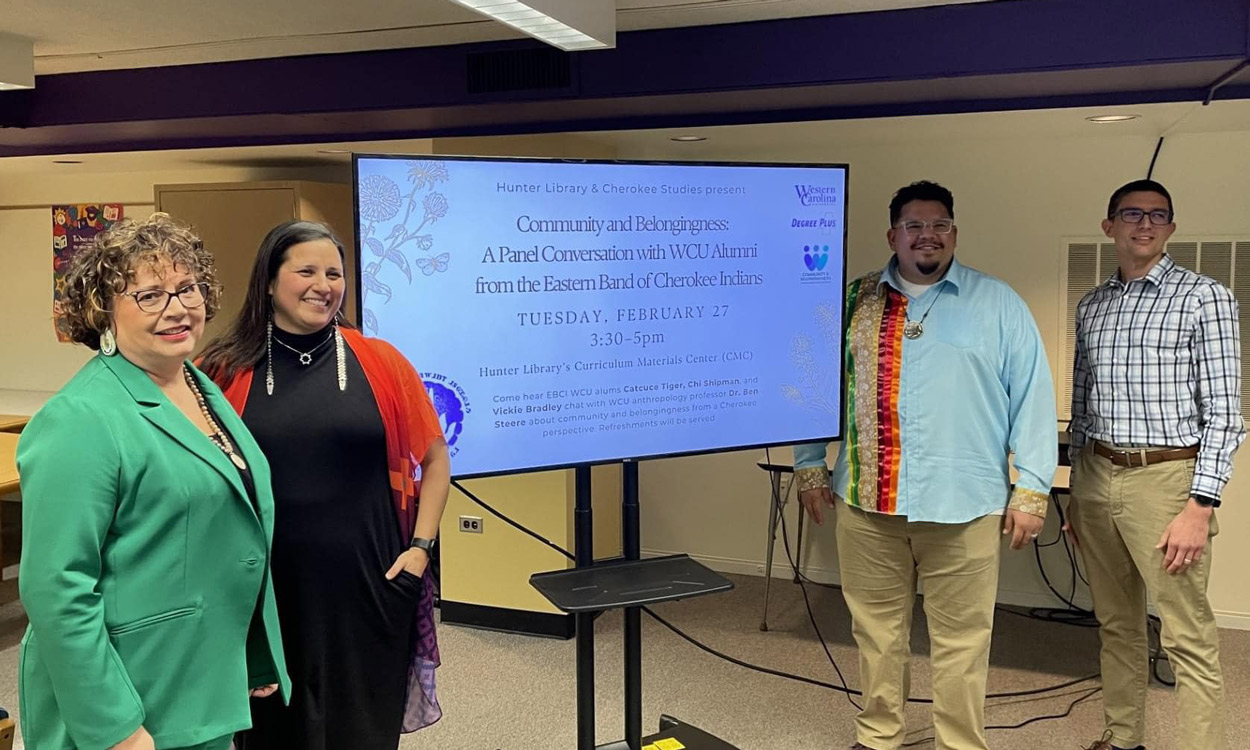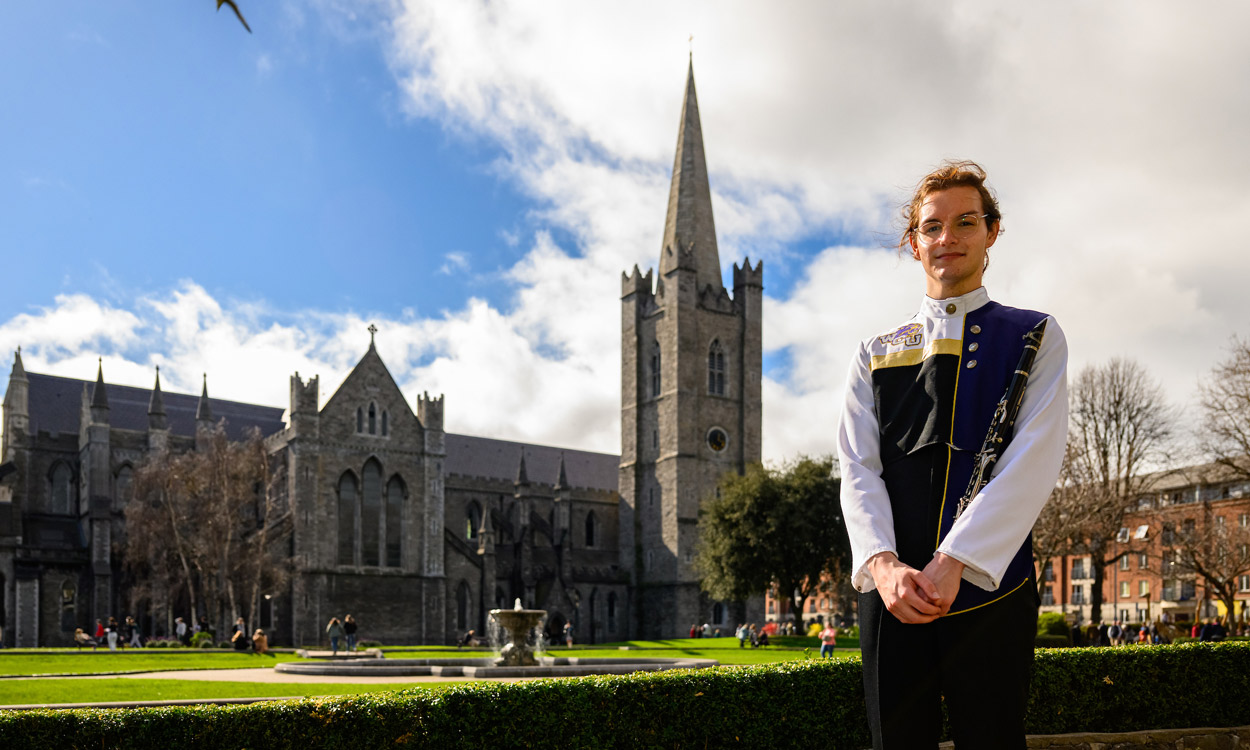Panel sparks conversations on community, belonging at WCU

From left to right: Eastern Band of Cherokee WCU alumni Vickie Bradley, Chi Shipman and Catcuce Tiger with Ben Steere, WCU associate professor.
By Chaz Lilly
Catcuce Tiger came to Western Carolina University as a graduate student. As a member of the Eastern Band of Cherokee Indians, he wanted to learn more about American history, including his cultural heritage.
The master’s degree, too, would help him grow as a teacher at Cherokee High school.
School was rough at first. He was working 40 hours a week and had a young child at home.
“My professors were assigning a lot of reading. I had a toddler crawling on me, playing with my hair, while I was trying to study. I remember thinking – how am I going to do this?” Tiger said.
Despite the challenges, Tiger made the most of his time in Cullowhee. And, thanks in-part to caring faculty, he graduated in 2015.
“My professors had a great impact on me. If I was having a tough day, they talked me through it. Sometimes that’s all you need – someone to listen,” Tiger said.
In the years since graduating, Tiger has taught Cherokee language and Cherokee history at Cherokee High School, where he has been selected twice as teacher of the year. He is a school board member at New Kituwah Academy in Cherokee and serves as vice president of the academy’s parent group.
Tiger returned to WCU’s campus to share his experience as an Indigenous student. Alongside two other members of the EBCI, he spoke at an event called “Community and Belongingness: A Panel Conversation with WCU Alumni from the EBCI.”
Hunter Library and the Cherokee Studies Program co-sponsored the event, which was funded by a WCU campus theme grant
“Hunter Library has long been interested in cultivating a strong sense of community and belongingness for all of our library users,” said Mandy Choie, Hunter Library research fellow. “As someone who is both new to WCU and this region, I’m personally interested in learning more about and engaging with the EBCI community here. Featuring our alumni demonstrates how community and belongingness can be nurtured across different communities and peoples, from Cullowhee to Cherokee.”
The panel also consisted of WCU alumni Chi Shipman and Vickie Bradley. Ben Steere, associate professor of anthropology and sociology, moderated the conversation. Steere served as director of the university’s Cherokee Studies Program from 2017-2022.
Shipman is a passionate advocate for the revitalization of Indigenous languages including Cherokee, her native tongue. Currently, Shipman serves as the adult language education coordinator for the Kituwah Preservation and Education Program, a government entity of the EBCI that focuses solely on the revitalization of the Cherokee language through immersion and curriculum development. Shipman holds a with a bachelor’s degree in anthropology and a minor in Cherokee studies.
“I’ve seen Western change from 20 years ago to now,” Shipman said. “I’ve seen the growth to include Cherokee culture and history. I don’t think I would have learned as much about our history and who I am if not for the amazing teaching staff here.”
Bradley, a member of the EBCI, is a registered nurse and public health executive with more than 30 years of health care experience. Her background includes working collaboratively and intersecting with tribal, local, state and federal systems. During her career, Bradley has worked in various roles in the private sector, Indian Health Service, and as the Secretary of Public Health and Human Services for the EBCI.
“I was very grateful to Vickie, Catcuce and Chi for taking time out of their busy schedules to come and speak with us,” said Steere. “In front of a standing-room-only crowd of current and former students, faculty and staff, they reminded us about the long history of WCU’s special relationship with the EBCI. Through their personal stories about their time at WCU and their careers in healthcare, education, and language revitalization, they encouraged us to continue doing the important work of making WCU a place where EBCI students are welcomed and feel empowered to learn and grow as scholars and leaders.”

